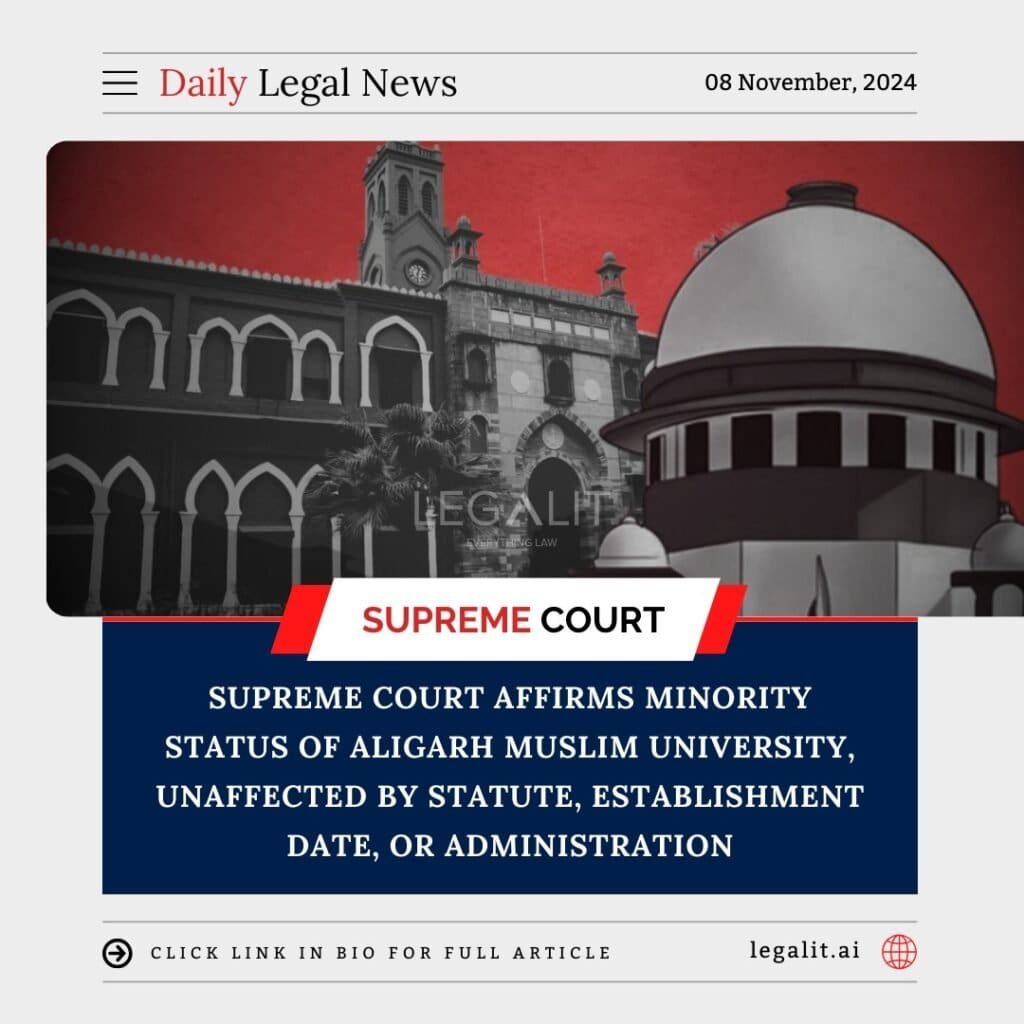
The Supreme Court of India has reaffirmed the minority status of Aligarh Muslim University (AMU), ruling that its status as a minority institution is unaffected by factors such as statutory changes, its date of establishment, or non-minority administrative appointments. This decision is a significant affirmation of minority rights in higher education.
Background:
The minority status of AMU has been a contentious issue, with debates about whether it should be considered a minority institution given its establishment and statutory history. Petitioners argued that AMU’s foundation under British rule and the subsequent statutory changes over the years dilute its claim to minority status. However, AMU maintained that its minority status aligns with the rights of the Muslim community to establish and administer educational institutions.
Court’s Rationale:
The Supreme Court, in its ruling, underscored that the minority character of an institution should be preserved when established to serve a minority community, regardless of statutory adjustments or administrative appointments involving non-minority members. The bench noted that constitutional provisions support the rights of minorities to establish educational institutions without interference, and that AMU’s foundational objectives as a minority institution remain intact.
Existing Measures:
Indian constitutional law, particularly Article 30, protects the rights of minorities to establish and administer their own educational institutions. Courts have historically interpreted these provisions to uphold the autonomy of such institutions, regardless of changes in administration or legal statutes, as long as they continue to serve their original purpose.
Conclusion:
The Supreme Court’s ruling solidifies AMU’s minority status, reinforcing the judiciary’s commitment to upholding constitutional protections for minority institutions. The decision emphasizes that statutory changes, dates of establishment, or administrative alterations do not impact the foundational minority rights of institutions like AMU. This judgment serves as a precedent, reaffirming the judiciary’s role in safeguarding minority educational rights in India.